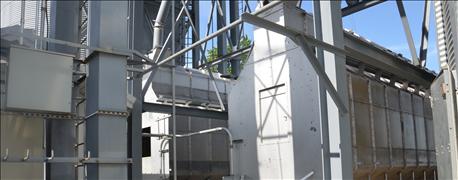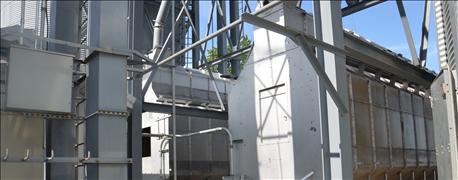
Will 2016 be the season that proves it’s time to upgrade to a different grain dryer? If so, what things should you consider as you shop for a used replacement dryer that will improve your efficiency and meet your needs?
Steve Curtis, Indianapolis, spent 45 years in the grain industry. He operates the website usedgraindryersnetwork.com. He doesn’t sell dryers; he simply makes it possible for dealers who have used dryers and farmers to find each other.
Here are seven factors Curtis says you should consider when looking for a used grain dryer:
1. Is there still life left in the dryer?

ANALYZE A DRYER: Capacity and remaining life are two of the first things to determine when considering a used grain dryer.
You may be searching for a different dryer simply because you need more capacity, not because your dryer is worn out. “You certainly don’t want to buy something that turns out to be junk because it is worn out,” Curtis says.
2. What capacity are you looking for in a used dryer?
This is often the reason for considering trading dryers, Curtis says. “There are plenty of dryers out there with lots of life left that have relatively large capacity,” he notes. You can narrow down your search by only considering dryers that have more capacity than your current dryer.
3. What type of automation does the dryer have?
Most brands have their own unique system of controls, but nearly every brand has some sort of system. That’s what’s changed over the past 10 years in grain dryers, Curtis says. “We’re seeing many people who want a larger dryer also look for more automation than their existing model had when they are ready to make the switch,” he says.
4. What will it control for you?
If you want to get away from babysitting a dryer all night, or hiring someone to do it, you need to know exactly what the controls of the dryer you’re considering will and won’t do, Curtis says. If moisture of incoming grain changes, will it automatically increase the heat or slow down the exit flow so that grain coming out has a consistent moisture content all day and all night? Exactly how does it accomplish this?
5. What parts are likely to wear out first?
On most dryers it will likely be sensors, Curtis says. “Electronics and sensor-related parts may be the first to wear out,” he says. “It will depend somewhat on the type of electronics the particular brand of dryer is using.”
6. Can you get parts and service support readily?
“Grain dryers are equipment, and they will break from time to time,” he says. “The key is having parts and service for the brand you have that is readily accessible. It’s something you would want to know before you buy a used dryer.”
7. Has the dryer been reconditioned?
Even if the dryer has some age on it, it may still be a good option if it’s the right size and has been reconditioned, Curtis says. Some dealers don’t list dryers for sale until their staff goes through them. It’s one thing to determine before buying, he says.
About the Author(s)
You May Also Like




